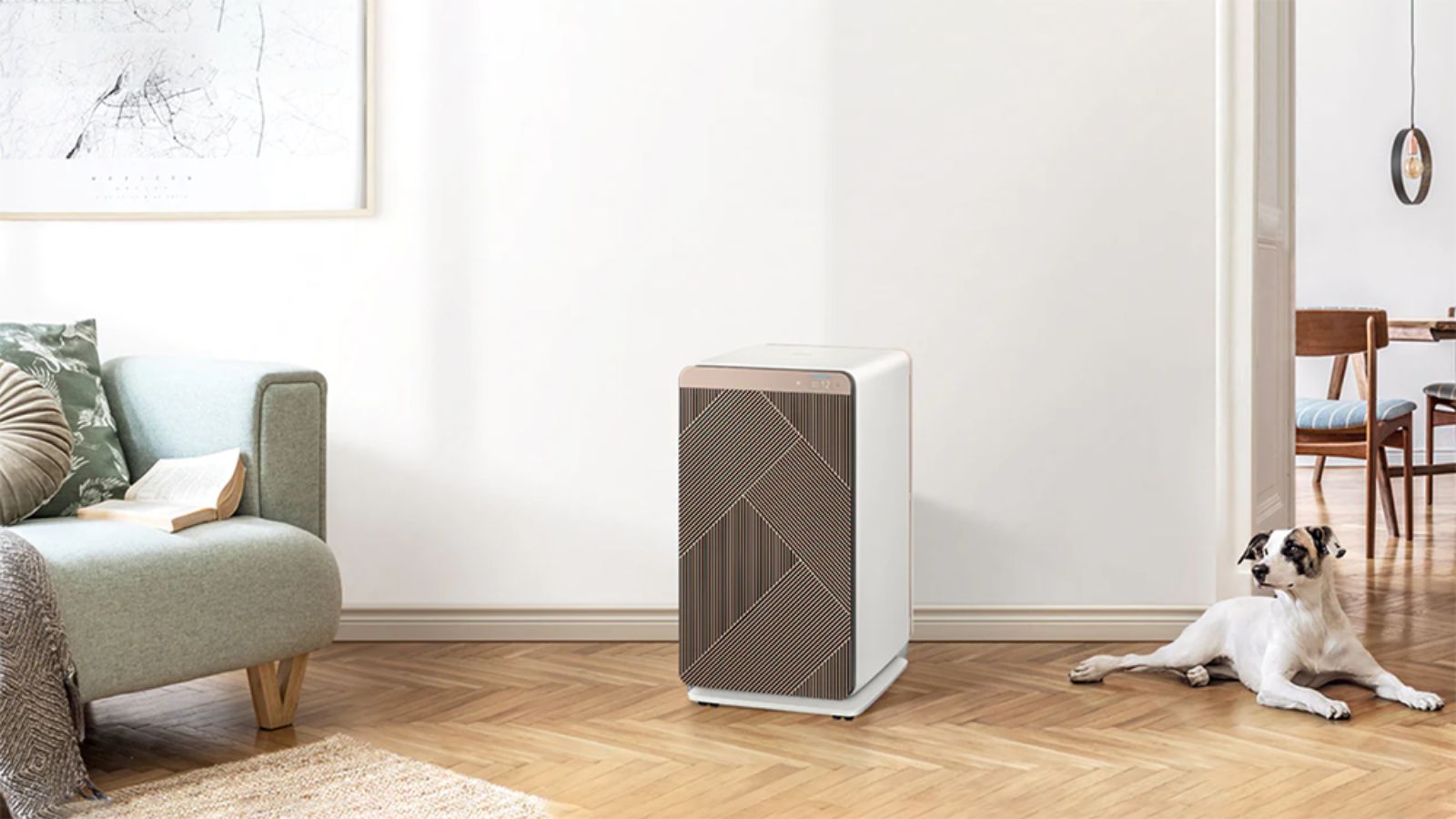
As appliances go, air purifiers are pretty unassuming. That little box in the corner of your room can trap particles and pathogens and neutralize fumes and odors, circulating clean, fresh air around the space.
There are smart machines with digital display screens that record and relay information about your indoor air quality, as well as old-school air purifiers for quick and quiet cleaning. In any case, the hard work goes on inside the machine, within the fans and filtration systems. From the outside, it can be hard to tell just what an air purifier does.
Here at H&G, we've tried and tested the best air purifiers on the market. I know my way around a machine and I can help you find the right air purifier to suit your space. I've spoken with HVAC experts and product developers to understand more about air purifiers, from how and why they work to whether they're worth the money.
What does an air purifier do?
How does an air purifier work?
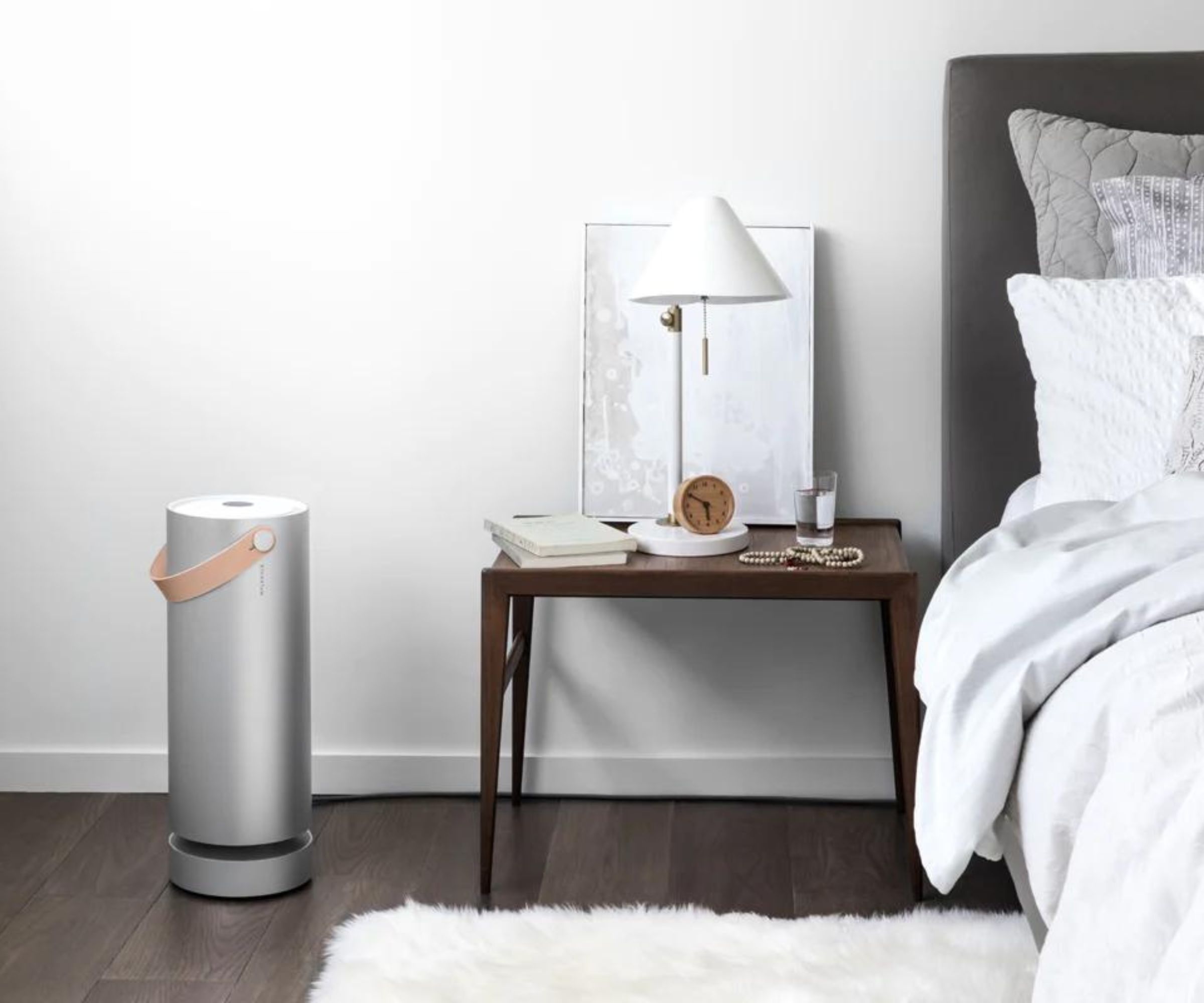
I asked Dr. Jie Zhao, Head of Delos Labs, to clarify exactly what an air purifier is and how it works. He told me that 'air purifiers are typically portable devices that remove pollutants from the air while recirculating fresh air in a space. Most air purifiers use a fan to suck the air inside the device. Then, they use physical filers, absorbent materials or other electronic methods to capture and break down pollutants, and push clean air into the space'.
The bigger the room, the harder an air purifier has to work to clean it. Dr. Zhao says that 'in order for an air purifier to be effective, it must have enough fan power to push air through the filters quickly'. In terms of wattage, anything from 10W to 100W should be sufficient.
'It is important to get an air purifier that is able to cover the area in which you plan to place it,' says Dr. Zhao, who recommends 'checking the ACH (air changes per hour) value of the device. The higher the ACH value, the more quickly the purifier replaces the air in your space with clean air'.
'Of course, the filtering mechanism has to be effective in removing different types of pollutants,' Dr. Zhao continues. The best air purifiers have HEPA filters. Here, 'HEPA' stands for 'high-efficiency particulate air'. According to Dr. Zhao, 'this type of filter is rated to remove at least 99.97% of dust, pollen, mold, bacteria, and any airborne particles with a size of 0.3 microns'. That's seriously small. Only HEPA air purifiers can filter fine particulate matter and give your indoor air a deep clean.
What are the benefits of an air purifier?
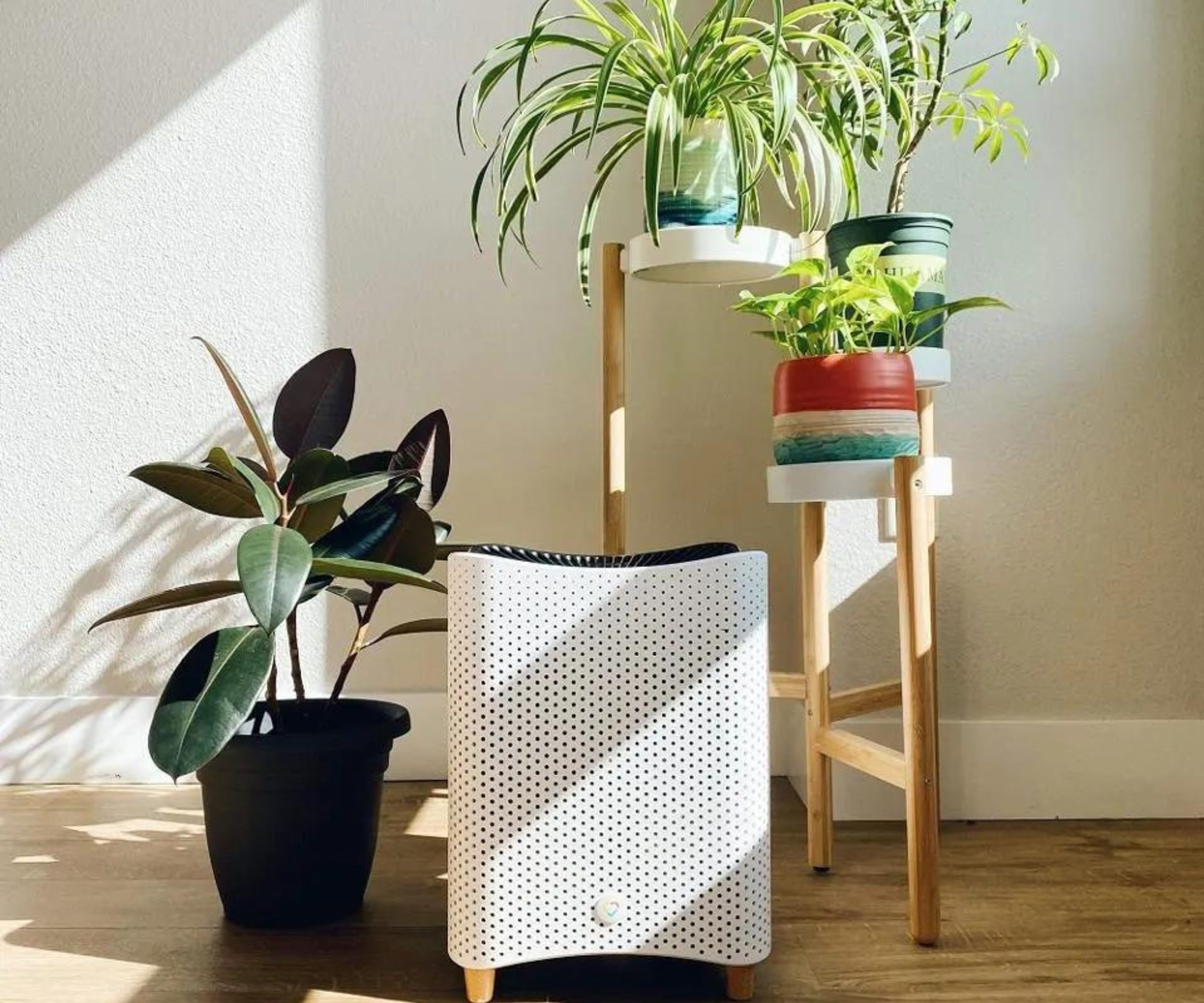
You might not think that much about your indoor air quality. To the naked eye, I'm sure it looks very clean − but the whole point of an air purifier is to detect and dispose of those particles that are too small to see, but powerful enough to do a lot of damage to your person and your property.
I asked HVAC expert Jason Brady to tell us more. Since air purifiers are designed to 'remove common allergens, such as dust, dander, pollen, and mold spores from the air, they can be especially helpful for people who suffer from allergies and asthma,' says Jason. 'Clean air helps to reduce respiratory problems during the day and overnight,' which makes an air purifier the ideal companion for allergy sufferers.
Jason says that 'many air purifiers contain activated carbon filters or similar technologies that can absorb and neutralize odors in specific rooms and throughout the home'. This is good news for cigarette smokers and pet parents who still want their homes to smell fresh. Jason thinks that health-conscious shoppers should keep an eye out for air purifiers with UV filters: these specialist machines work to 'reduce the concentration of pathogens in the air and slow the spread of airborne diseases'.
If you don't smoke, keep pets, or get sick that often, you might not think you need an air purifier. Before I'd encourage you to stop and consider the air quality in your local area: it might not be as clean as you would like. Jason says that the best air purifiers 'filter harmful particles, such as smoke, street pollution, and microscopic pollutants, which is particularly relevant in urban areas'. Even the best air purifier can't clean the great outdoors, but it could clear the air you bring inside.
To save you a little time and money, I've rounded up a few of my favorites at the fairest prices you'll find online. No matter the style of your space or the size of your budget, I've got an air purifier for you.
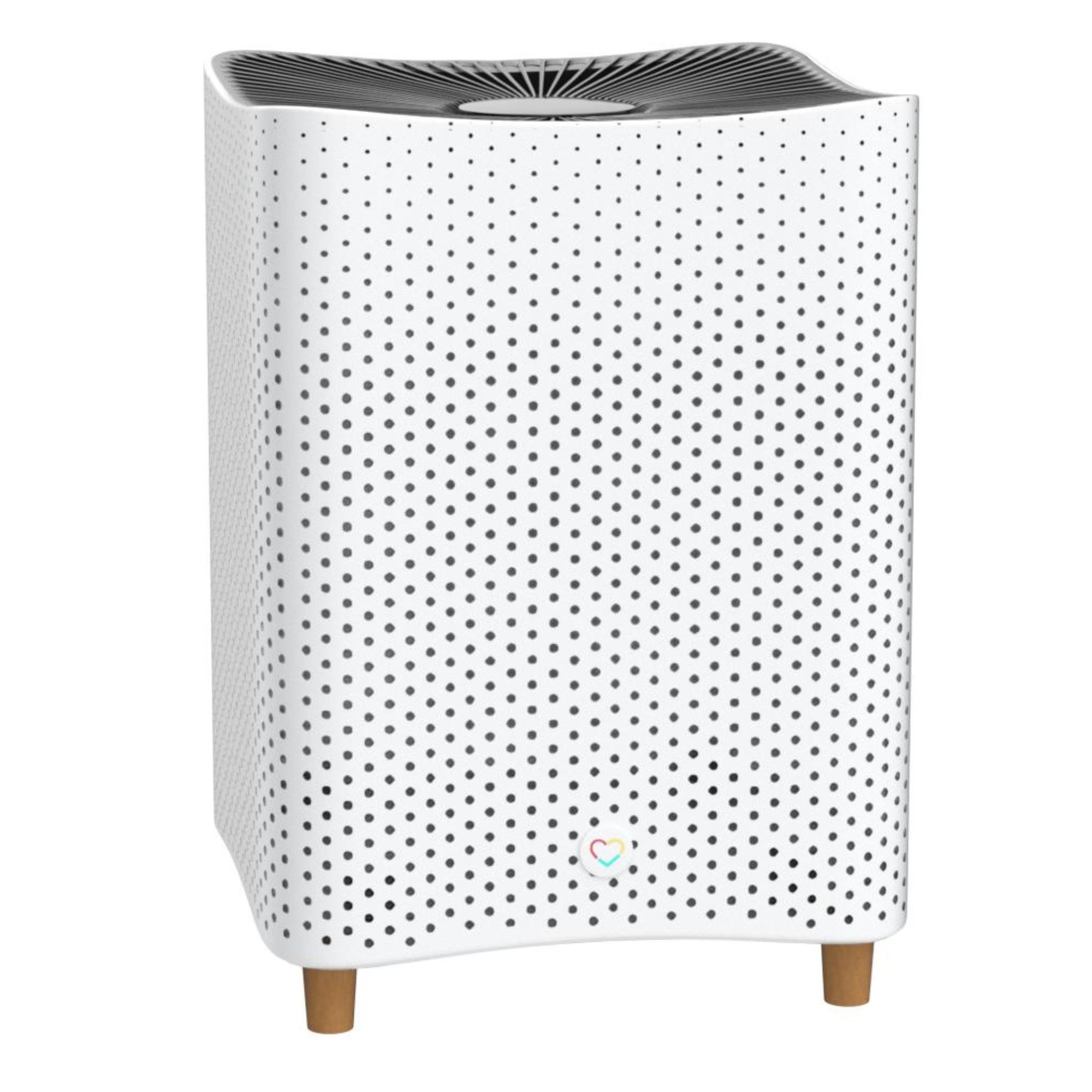
This smart machine works to cleanse the air of dirt, dust, particles and pathogens. The Mila app offers regular air quality updates in clear language, using words (and emojis) that you can understand.
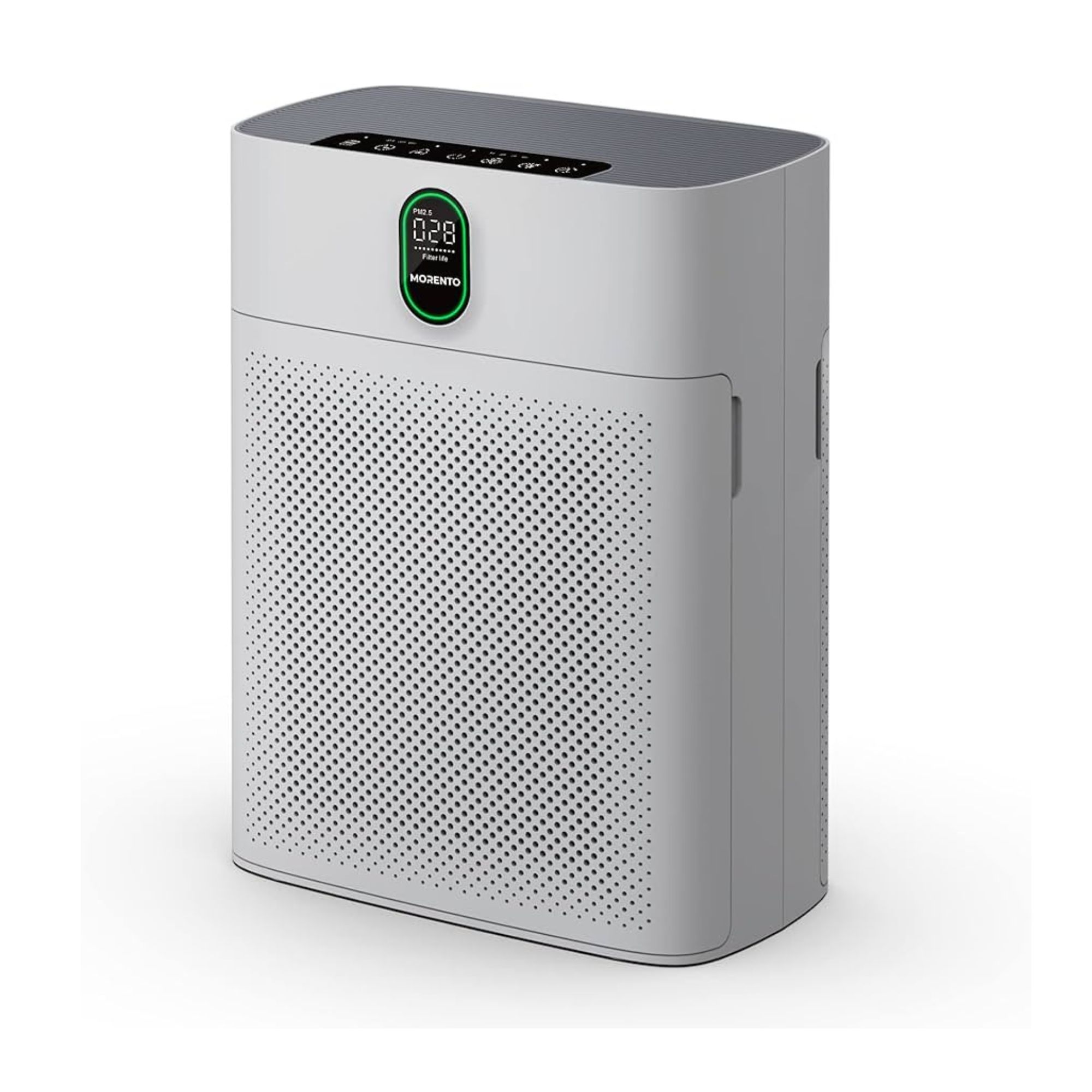
The Morento Air Purifier is designed to fit in tight corners and narrow nooks. It looks so little, and works so quietly, that you might just forget it's there.
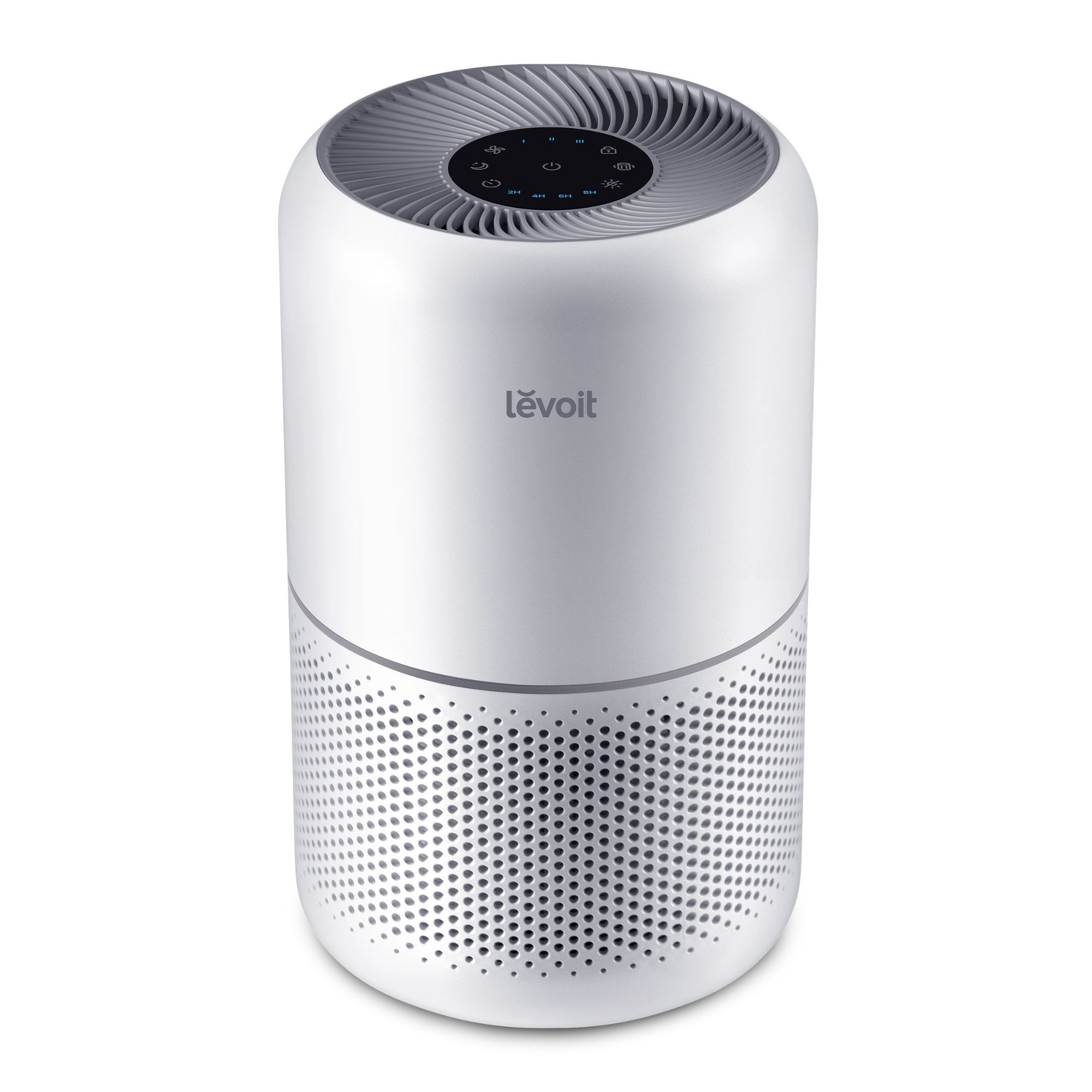
Everyone deserves to breathe clean air, but not everyone has hundreds of dollars to drop on smart tech. If you're buying on a budget, consider the Levoit Core 300 Air Purifier. This quick and quiet worker clears the air for less than $100.
What are the downsides of an air purifier?
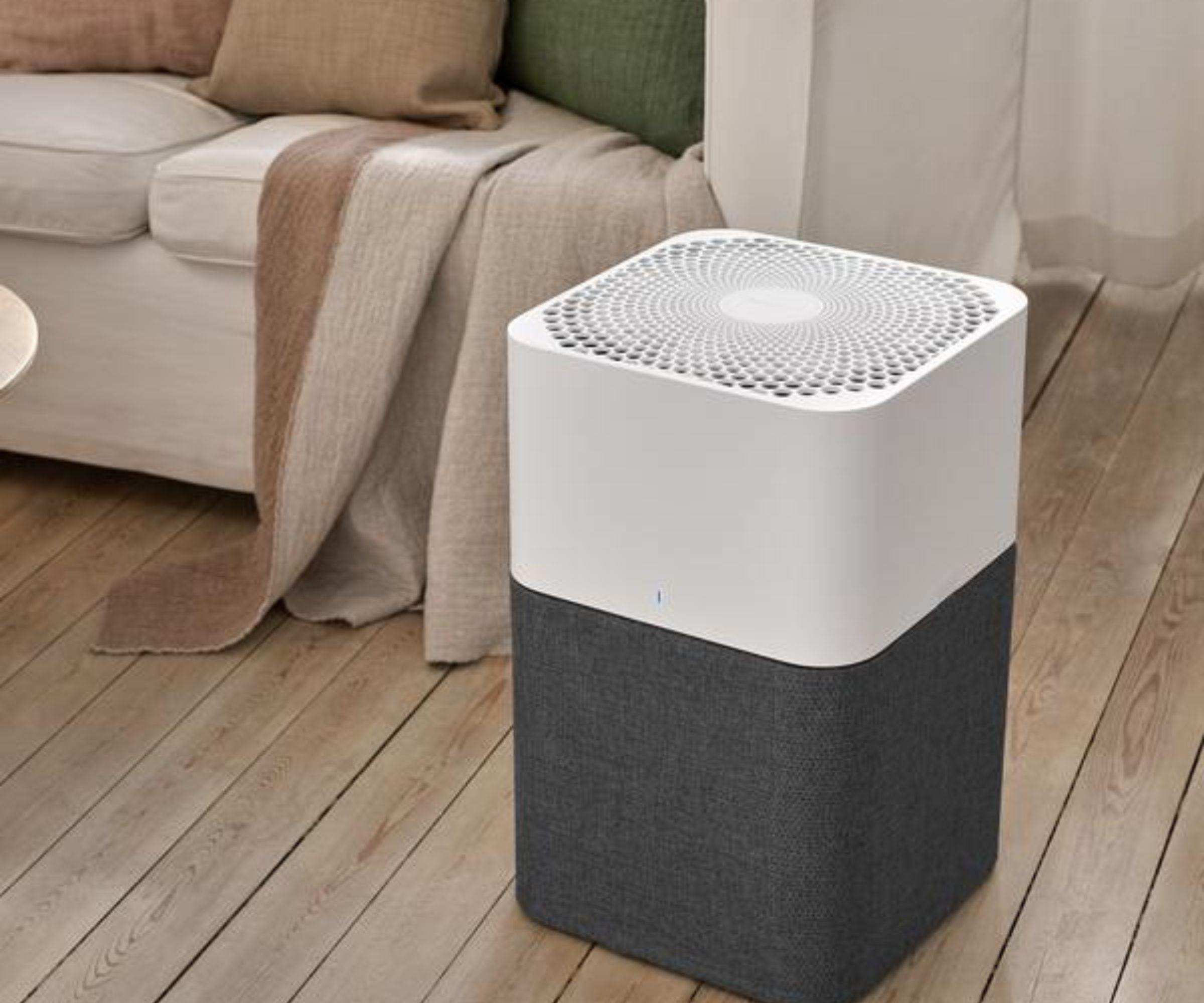
There's no getting around it: air purifiers can be seriously expensive. Some of the latest and greatest models retail for hundreds of dollars, even during sales season. If you live in a rural area, or anywhere with decent air quality, you might not be able to justify the price.
What's worse is that your average air purifier doesn't even look that good. Whether it comes as a big, bulky boxes or a shiny cylinder, it can be hard to find the best place to put an air purifier without disrupting your decor.
Air purifier FAQs
Which air purifier is the best?
You can't get much better than the Mila Air Purifier. Conceived in the smog of Shanghai by three dads who wanted cleaner air for their kids, Mila comes with custom filters to suit specialist needs. Whether you keep pets, raise kids, or suffer from allergies, Mila's got a filter for you.
If you're shopping for a multifunctional machine, consider the Dyson Purifier Humidify + Cool, which offers a fan, a humidifier, and an air purifier in one sleek machine. It's tall, but narrow, and should easily fit in tight corners.
Not everyone likes a smart machine. The Dreo Macro Pro is an old-school air purifier. It's got all the important functions, from child lock to sleep mode, and none of the unwanted extras.
Will an air purifier help with mold?
Yes. A premium air purifier with a HEPA filtration system should be able to capture and contain airborne mold spores. While an air purifier can slow and stop the spread of mold, it can't keep the mold from growing in the first place. If you keep finding mold and mildew in the same places, it might be worth paying a professional to inspect your home and improve your ventilation system.
Final thoughts
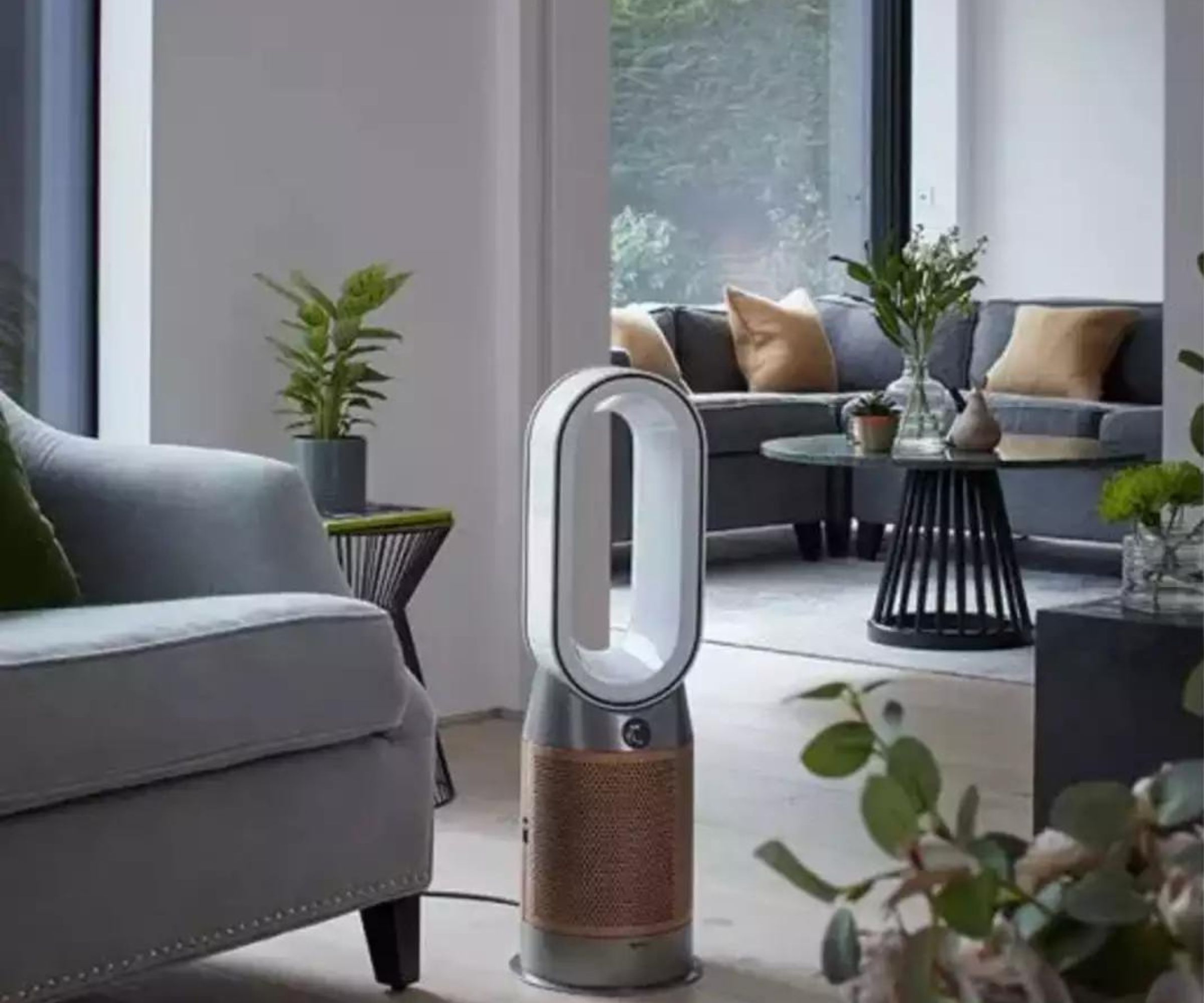
If you're keen to breathe cleaner air, but you just can't get behind an air purifier, it might be worth exploring alternative options, from air conditioners to purifying house plants. When you heed expert advice, you can learn how to improve air quality indoors, even without an air purifier.







